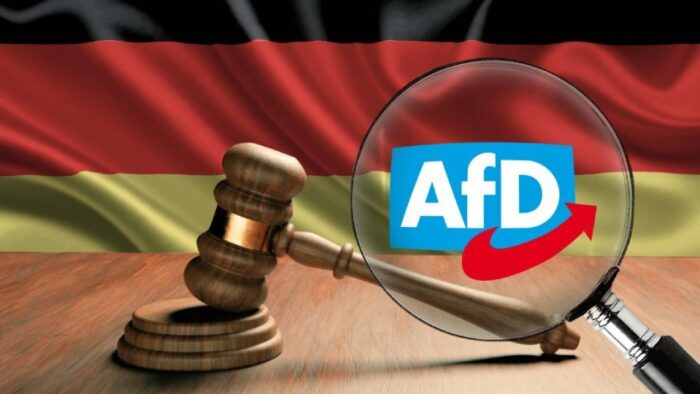Germany’s AfD extremist classification has triggered a diplomatic spat with the United States. On May 3, 2025, AP News reported that Germany’s foreign ministry responded sharply to criticism from US Secretary of State Marco Rubio after German intelligence classified the Alternative for Germany party as a “right-wing extremist” organization. The article begins:
Germany’s foreign ministry hit back at U.S. Secretary of State Marco Rubio after he criticized the decision to classify the Alternative for Germany party as a “right-wing extremist” organization. The spat deepened Friday to embroil the foreign office, Rubio, U.S. Vice President JD Vance and tech billionaire Elon Musk. It also occurred at a complicated time for Germany — just days before the 80th anniversary of the end of World War II and Nazi Germany’s unconditional capitulation. Plus, a coalition deal between the center-right and center-left parties was just approved, and now parliament is set to vote next week to elect conservative leader Friedrich Merz as the country’s new chancellor.
Key Points
- The German intelligence service’s classification means officials can now use informants and surveillance tools to monitor AfD activities nationwide.
- Rubio labeled the move “tyranny in disguise,” while VP Vance claimed Germany’s establishment had “rebuilt” the Berlin Wall.
- AfD leaders Weidel and Chrupalla condemned the classification as “politically motivated” and a “severe blow to German democracy.”
- The dispute occurs as Germany prepares for Friedrich Merz to become chancellor following a coalition agreement between center-right and center-left parties.
Germany’s Extremist AfD: Rubio Comments Highlight Party’s Role in the GNCA
The German AfD party has increasingly aligned itself with the Global National Conservative Alliance (GNCA), amplifying nationalist and anti-globalist narratives while serving as a conduit for Russian influence in Europe. AfD leaders have sought closer ties with Hungary’s Fidesz party and echoed GNCA talking points on immigration and “woke” politics, as seen in recent predictions by AfD MEPs about deepening alliances with Hungary and warnings about social crises. Meanwhile, analyses reveal that the AfD’s public admiration for Russian governance contradicts the reality of Putin’s authoritarianism, yet this rhetoric has helped normalize pro-Kremlin positions among German voters, reinforcing the party’s role in spreading Russian disinformation and whitewashing Kremlin policies. The AfD’s radicalization is further underscored by incidents such as Lena Kotré’s planned speech at a UK far-right event and her distribution of banned weapons, which experts warn could validate and embolden white supremacist groups. These trends reflect a broader pattern: Russian operatives have actively courted AfD politicians, offering incentives and orchestrating disinformation campaigns to amplify Kremlin-friendly narratives, especially ahead of European elections, as documented in external analyses of Russian interference tactics. The AfD’s transformation into a principal conduit for external influence and extremist narratives is now a growing concern in Germany and across the EU.
External References:
Disclaimer
The Global Influence Operations Report (GIOR) employs AI throughout the posting process, including generating summaries of news items, the introduction, key points, and often the “context” section. We recommend verifying all information before use. Additionally, images are AI-generated and intended solely for illustrative purposes. While they represent the events or individuals discussed, they should not be interpreted as real-world photography.









